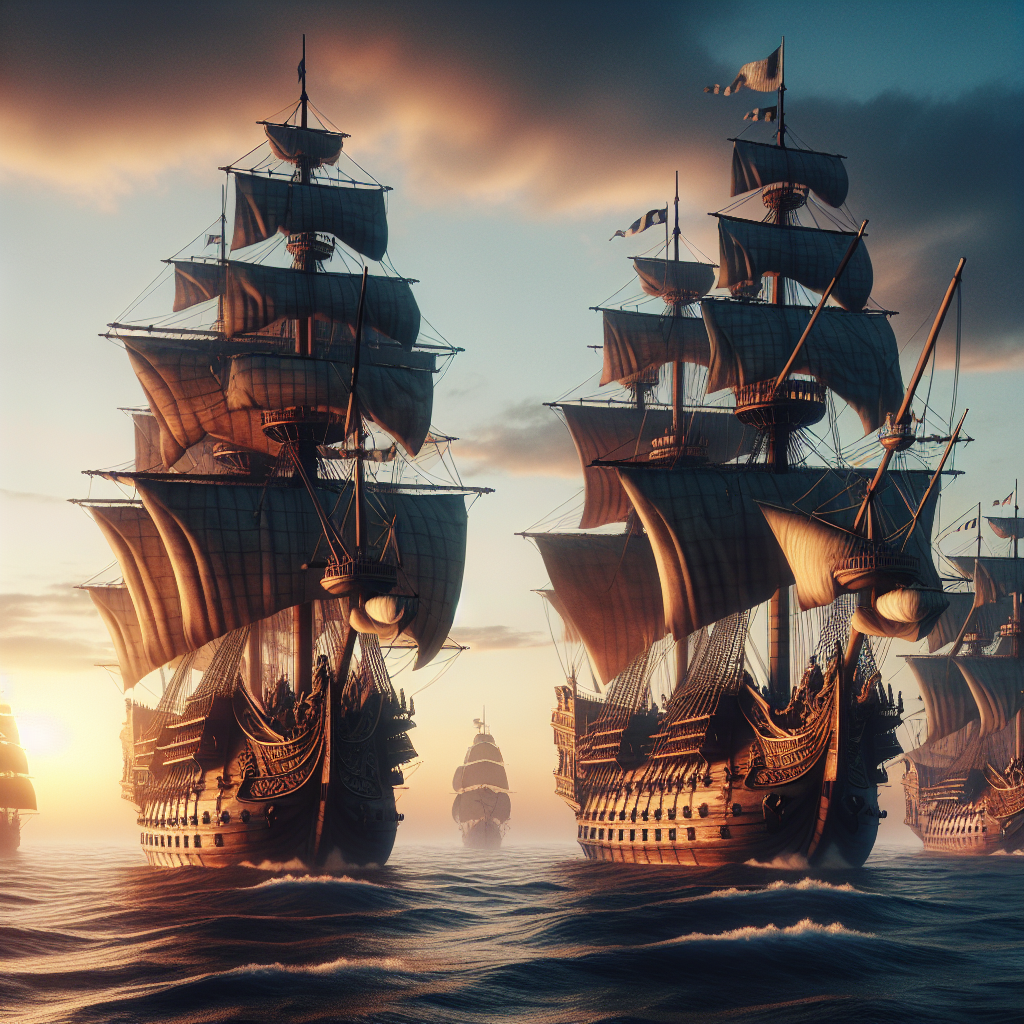Navigating the Rough Seas of Global Politics: The Maritime Order Strategy
The dichotomy between continental and maritime powers represents not merely a divergence in military or geographical strategies but embodies fundamentally distinct worldviews that have shaped the course of human history. This deep-seated divide underpins much of the global order today, influencing international relations, economic policies, and military strategies. At the heart of this lies a compelling narrative of how nations choose to secure their interests, prosperity, and survival in an increasingly interconnected world.
A Tale of Two Powers
The Continental Quest for Territory
Continental powers, historically led by figures like Putin, perceive security through the lens of territorial expansion. This worldview is predicated on the belief that land equals power. The annexation of territories such as Eastern Ukraine and Crimea by Russia in 2014 stands as a testament to this approach. However, this strategy is inherently negative-sum. It wreaks havoc on local economies and diminishes the overall value of the annexed regions, turning potentially thriving areas into zones of conflict and economic desolation.
Maritime Powers: The Commerce Connoisseurs
Contrastingly, maritime powers like Britain have long held that true security comes not from land, but from the seas and the wealth that can be amassed through trade and commerce. This perspective gave rise to an international order rooted in laws and mutual benefits. Nations adhering to this order believe in maximizing economic gains through cooperative trade practices, governed by international law. The Dutch Republic and the legal frameworks developed by Hugo Grotius laid the groundwork for this system, advocating for a world where transactions are regulated by law, creating a win-win scenario for all involved.
Amid the high stakes of global politics, the maritime strategy offers a refreshing alternative to the zero-sum game of territorial conquests. It's an invitation to a feast where everyone can grow richer together, rather than fighting over scraps.
The Evolution of Global Order
The Industrial Revolution: A Turning Point
The advent of the Industrial Revolution marked a pivotal shift, favoring the maritime approach. This era ushered in a new understanding of national security and prosperity, emphasizing economic growth and compounding wealth over territorial expansions. Nations that aligned with this approach, investing in institutions and adhering to international laws and treaties, found themselves at the forefront of global wealth and influence.
The Role of Institutions and International Law
Institutions play a crucial role in structuring decision-making on a global scale. The establishment of international organizations and the signing of treaties are fundamental to the maintenance of peace and the promotion of mutual economic growth. The post-World War II era saw a proliferation of such organizations, which have been instrumental in sustaining global peace and fostering cooperation among nations.
The effectiveness of these institutions lies in their ability to evolve and adapt to the interests of the international community. They offer a platform for negotiation and collaboration, allowing nations to influence their development and ensure their continued relevance.
Russia's Crossroads: Continental Ambitions Versus Maritime Integration
Russia's inclination toward continental strategies, underscored by its territorial ambitions, starkly contrasts with the maritime principles of trade and mutual benefit. Despite the opportunities presented by the end of the Cold War, Russia's fixation on territorial expansion has hindered its potential for economic growth and international integration.
The enormous resources allocated to military ventures could have been invested in improving the country's infrastructure and legal system, paving the way for a thriving economy based on small businesses and innovation. Russia stands at a crossroads, with the choice to embrace the maritime order and its associated benefits or continue down the path of isolation and economic stagnation.
The Brilliance of Containment: Safeguarding the Maritime Order
The strategy of containment, as proposed by maritime powers, offers a pragmatic approach to dealing with the challenges posed by continental ambitions. It emphasizes cooperation among nations that subscribe to the principles of the maritime order, promoting negotiation and the use of international organizations to resolve disputes.
This strategy does not aim to ostracize or permanently exclude nations like Russia but rather to incentivize behavioral change. By demonstrating the benefits of participation in the maritime order, it holds the promise of reintegration and mutual prosperity. Just as Germany and Japan were integrated into the international community post-World War II, there remains hope for Russia's eventual alignment with maritime principles.
Conclusion: The Way Forward
As we navigate the turbulent waters of global politics, the contrast between continental and maritime strategies offers valuable insights into the fundamental choices facing nations today. The maritime order, with its emphasis on cooperation, legal frameworks, and economic prosperity, presents a compelling blueprint for a more peaceful and prosperous world.
By embracing this approach, we can foster an environment where nations work together to address common challenges, ensuring a brighter future for all. The journey ahead is fraught with challenges, but the promise of the maritime order shines as a beacon of hope, guiding us toward a world where security and prosperity are within everyone's reach.
For further reading on the intricacies of international law and the significance of maritime strategies in global politics, these resources offer comprehensive insights:
In the end, the choice between continental and maritime strategies is more than a matter of geopolitics; it is a reflection of our collective aspirations for a world governed by principles of fairness, cooperation, and shared prosperity. As we stand at this crossroad, the path we choose will shape the fate of nations for generations to come.
Related News
- Navigating the Tightrope: The Delicate Dance of Diplomacy with Russia
- The Strategic Blunders That Reshape Geopolitical Landscapes: From Pearl Harbor to Crimea
- Russia's Missed Road to Prosperity: A Journey Through Its Woes and What Could Have Been
- The Unipolar Moment and Its Impact on Global Power Dynamics
- Peering Into the Abyss: The Shadow of Global Conflict in the Modern Era
